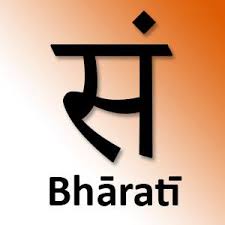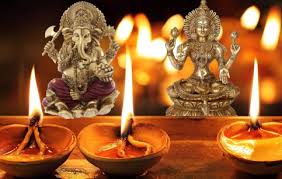





Samskrta
Saṃskṛtm (संस्कृतम्) or for short Sanskrit is an ancient sacred language of bharatavarsha that is the classical literary language of India. The name Sanskrit means "refined", "consecrated" and "sanctified" or "produced in perfect form".
History
It is said that Brahma was the creator and introduced Sanskrit language to the Sages of celestial bodies. Therefore, this language is also called Dev Vani which means "the language of the Gods." The script is called Devanagari, meaning "used in the cities of the Gods." Sanskrit is considered to be the oldest language in the world.The Vedas, the universally accepted first scriptures of humanity, were written in this language and were transmitted directly from the spiritual world at the dawn of creation. Therefore, their language bears the power to connect the reciter and the receptors of mantra and sloka with the eternal spiritual reality. Consequently, Sanskrit produces a transcendental sound vibration which is able to liberate the living entity from the material existence called samsara, the circle of repeated births and deaths. Sanskrit is based on root sounds or vibrations of the Universe. The capacity of Sanskrit vowels and syllables has the potential to generate all the sounds of all words or sounds spoken in any language. This finding implies Sanskrit as universal source of linguistic expression and the mother of all spoken or written languages. Sanskrit has a vast vocabulary than any other language and therefore has a word for all expression. It is said that the language itself arises from the root sounds or vibrations of the Universe. The various vowels and consonants that make up Sanskrit words represent these core sounds, known as bijas. Whilst in states of deep resonance with the cosmos (in other words, while in meditation), the Rishis, the ancient spiritual scientists, could perceive these bija sounds; and from this profound sense of perception, they recognized the inherent sounds. Sound is considered the subtlest of all five elements, and controlling sound can help manipulate matter, as through the chanting of mantras. Sanskrit mantras, when recited in combination with the sound vibration, have a specific effect on the mind and the psyche of the individual. By paying continuous attention to the point of location, degree of resonance, and effort of breath, one's awareness becomes more and more consumed by the direct experience of articulated sound. This in itself produces an unprecedented clarity of mind and revelry in the joy of language. The perfect pronunciation of a Sanskrit word has the power to manifest and/or influence that particular thing. Sanskrit, for this very reason, is referred to as the ‘perfect language’.
The capacity of Sanskrit vowels and syllables has the potential to generate all the sounds of all words or sounds spoken in any language. This finding implies Sanskrit as universal source of linguistic expression and the mother of all spoken or written languages. Sanskrit has a vast vocabulary than any other language and therefore has a word for all expression. It is said that the language itself arises from the root sounds or vibrations of the Universe. The various vowels and consonants that make up Sanskrit words represent these core sounds, known as bijas. Whilst in states of deep resonance with the cosmos (in other words, while in meditation), the Rishis, the ancient spiritual scientists, could perceive these bija sounds; and from this profound sense of perception, they recognized the inherent sounds. Sound is considered the subtlest of all five elements, and controlling sound can help manipulate matter, as through the chanting of mantras. Sanskrit mantras, when recited in combination with the sound vibration, have a specific effect on the mind and the psyche of the individual. By paying continuous attention to the point of location, degree of resonance, and effort of breath, one's awareness becomes more and more consumed by the direct experience of articulated sound. This in itself produces an unprecedented clarity of mind and revelry in the joy of language. The perfect pronunciation of a Sanskrit word has the power to manifest and/or influence that particular thing. Sanskrit, for this very reason, is referred to as the ‘perfect language’.
Learn MoreContact
Magnam dolores commodi suscipit. Necessitatibus eius consequatur ex aliquid fuga eum quidem. Sit sint consectetur velit. Quisquam quos quisquam cupiditate. Et nemo qui impedit suscipit alias ea. Quia fugiat sit in iste officiis commodi quidem hic quas.
Location:
A108 Adam Street, New York, NY 535022
Email:
info@example.com
Call:
+1 5589 55488 55s
